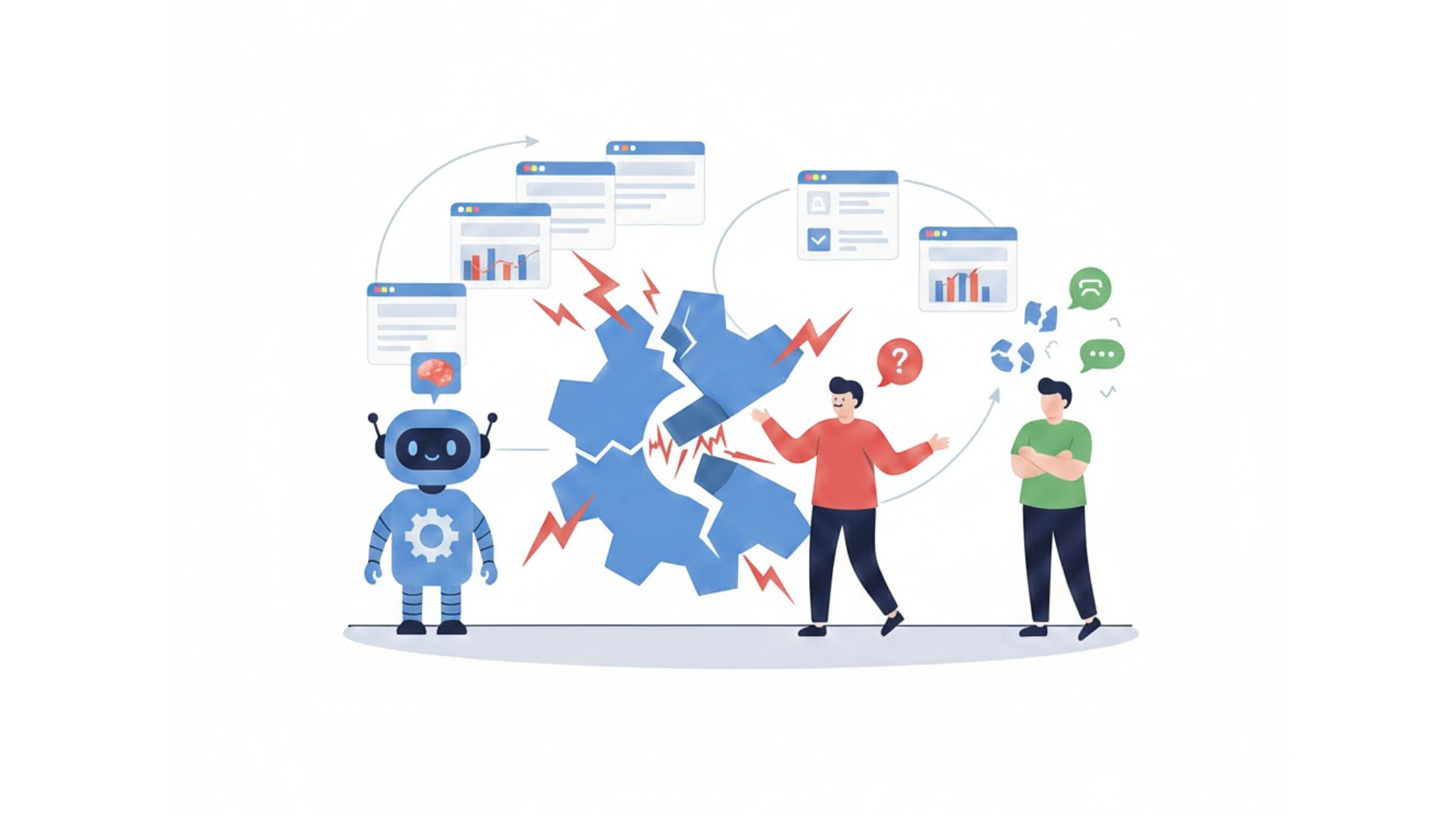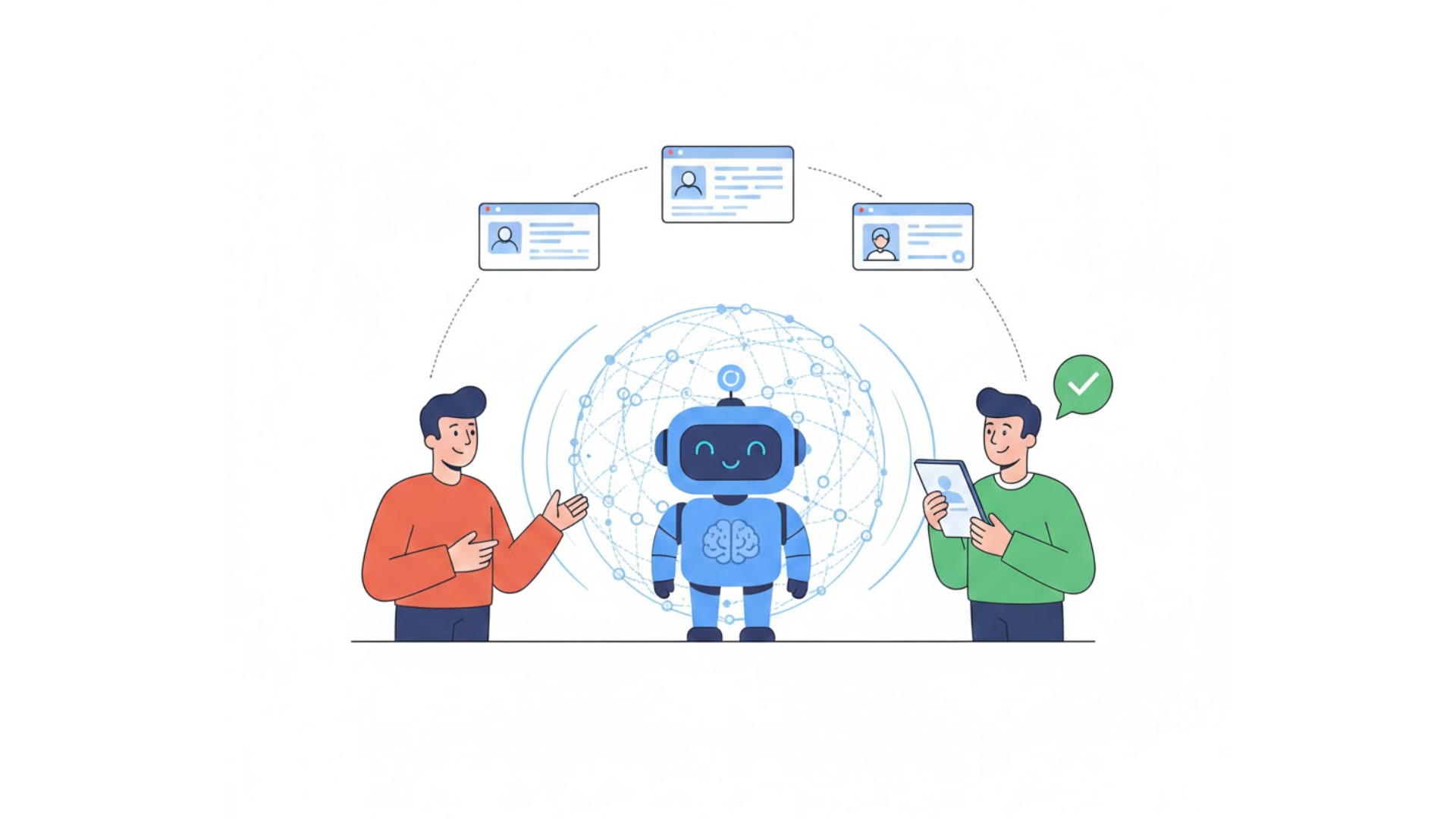Customer support leaders today face a daunting double challenge: ticket volumes are skyrocketing, and customer expectations for speed and personalization have never been higher. Human agents remain at the heart of support, but even the best teams hit limits when repetitive, manual, and time-intensive tasks pile up.
This is where AI Assistants come in. Far from replacing agents, they act as copilots—removing bottlenecks, accelerating resolutions, and giving support teams the bandwidth to focus on meaningful, high-value interactions.
In this long-form guide, we’ll address the most common questions CX leaders ask about AI Assistants—backed by real-world examples, vertical insights, and analyst perspectives.
Customer service teams struggle with ticket backlogs
The average enterprise contact center processes tens of thousands of tickets monthly, spanning email, chat, voice, and social. Gartner reports that 65% of CX leaders identify volume growth as their #1 scaling challenge.
The drivers of backlog are consistent across industries:
- Repetitive queries: Password resets, order tracking, refund requests. In Retail, up to 40% of incoming queries fall into this category. In BFSI, card-blocking and balance checks dominate.
- Context switching: Agents juggle between CRMs, knowledge bases, spreadsheets, and messaging platforms—slowing focus and increasing handle time.
- Manual triage: Many support setups still rely on humans to tag, sort, and route tickets. Even 1–2 minutes of manual routing per ticket compounds into hours lost daily.
- Lack of real-time guidance: Newer agents often lack instant support, relying on peer escalations or browsing long policy documents. This increases FRT (First Response Time) and reduces accuracy.
Industry snapshots:
- Retail: A holiday surge triples order inquiries, stretching teams beyond capacity.
- BFSI: Fraud alerts spike during seasonal shopping festivals, leading to customer anxiety if response times lag.
- Travel: Flight disruptions generate sudden waves of refund and rebooking requests, overwhelming traditional queues.
- Utilities: Storm-related power outages generate massive spikes in outage tickets.
- Healthcare: Appointment cancellations or rescheduling requests overwhelm hospital front offices.
The outcome is predictable: backlogs, SLA breaches, and frustrated customers.
AI Assistants – Copilots for agents
Think of AI Assistants as copilots in a cockpit. They don’t replace pilots; they optimize the flight path and keep everything within reach.
AI supports agents by:
- Instant classification & routing: Every ticket is auto-labeled and routed to the right team, shaving minutes off manual triage.
- Suggested responses: Draft replies appear instantly, saving typing time and ensuring brand-consistent tone.
- Knowledge retrieval: AI pinpoints the exact policy, help doc, or past case relevant to the customer query.
- Context stitching: Information from CRM, transaction history, and knowledge bases is pulled into one unified view.
What’s the impact of this support in real workflows?
- In Retail, a ticket about a delayed shipment is instantly tagged as “delivery issue,” routed to logistics, and paired with the latest carrier updates.
- In BFSI, a lost-card report is automatically routed to fraud prevention, with the AI surfacing the customer’s account verification steps.
- In Travel, a rebooking query is enriched with passenger details, flight schedules, and compensation policies before the agent responds.
- In Healthcare, a patient rescheduling request is routed to scheduling, with AI surfacing available slots and insurance eligibility checks.
The result: Agents no longer start tickets blind—they begin with context, guidance, and a draft in hand.
How fast is a fast resolution?
Here’s a typical AI-assisted flow:
- Ticket arrives → AI auto-tags as “refund request” and routes directly to billing.
- Agent opens ticket → A draft response appears with the customer’s order details prefilled.
- AI nudges agent → A knowledge card pops up with the latest refund policy and escalation rules.
- Agent personalizes & sends → Resolution takes under 3 minutes instead of 10.
Vertical case studies:
- Retail: An apparel brand reduced return-related ticket times from 12 minutes to 4 by combining AI drafts with real-time inventory checks.
- BFSI: A bank slashed fraud claim resolution times by 45% when AI copilots pulled in transaction histories and compliance scripts instantly.
- Travel: An airline reduced call times by 35% during weather disruptions when AI surfaced rebooking rules and voucher policies mid-conversation.
- Utilities: A power company improved outage communication by auto-generating personalized SMS updates, reducing inbound calls by 30%.
- Healthcare: A clinic reduced call center queues by integrating AI that prefilled patient details for agents handling insurance claims.
When multiplied across thousands of tickets, the impact is transformative.
Can AI Assistants really reduce AHT and improve SLA compliance?
Yes. Studies from McKinsey and Gartner suggest that AI augmentation reduces handle times by 20–40% on average, depending on maturity of integration.
Key metrics improved by AI Assistants:
- AHT (Average Handle Time): Reduced through faster triage, contextual data, and drafted responses.
- FCR (First Contact Resolution): Higher because agents are guided to the right solution first time.
- SLA adherence: AI-driven workflows ensure urgent or VIP tickets are prioritized correctly.
Hidden ROI beyond AHT:
- Fewer escalations to supervisors.
- Lower rework on wrongly tagged tickets.
- Improved consistency in tone and compliance adherence.
- Better morale from reduced repetitive work.
The business impact extends far beyond efficiency—it drives better customer trust and brand reputation.
What risks or challenges come with adopting AI Assistants?
Like any technology, there are adoption challenges:
- Over-reliance: Agents may over-trust AI drafts. Training must reinforce review and personalization.
- Data quality issues: Outdated or siloed knowledge bases reduce AI accuracy. Governance and regular audits are essential.
- Integration complexity: AI needs to flow seamlessly into CRMs, ticketing platforms, and chat/voice systems.
- Compliance: In BFSI or healthcare, AI must operate within GDPR, PCI, or HIPAA constraints.
PwC research highlights that governance and explainability are critical in scaling AI responsibly. The solution isn’t avoiding AI, but ensuring feedback loops, observability, and agent guardrails are in place.
How AI Assistants improve agent experience
Faster resolutions are often framed as customer benefits—but agents benefit just as much.
- Reduced burnout: Less copy-paste, fewer manual lookups.
- Faster onboarding: Guided suggestions help new agents ramp up in weeks instead of months.
- Deeper engagement: Senior agents can spend time solving complex, strategic issues.
This has direct Employee Experience (EX) benefits. Gartner notes that companies investing in EX outperform peers in CX metrics by 2:1, as engaged agents deliver better service.
Tie-in: A frustrated customer is often the result of a frustrated agent. By giving agents better tools, AI prevents frustration from cascading across the interaction.
Is there a right strategy for rolling out AI Assistants?
A phased approach ensures smoother adoption:
- Start with repetitive queries: Password resets, balance checks, refund lookups.
- Train and align agents: Reinforce that AI is a copilot, not a replacement.
- Expand scope gradually: Introduce routing, knowledge retrieval, then advanced features like QA automation.
- Measure the right metrics: Track AHT, FCR, CSAT, SLA, and EX surveys to evaluate impact.
- Close the loop: Use AI-powered QA to feed back learnings into workflows.
Checklist:
- Governance framework
- Feedback loop with human QA
- Clear integration roadmap
- Training programs for agents
Can AI Assistants deflect tickets before they reach agents?
Yes. The best implementations integrate AI across the entire lifecycle:
- AI Self-Serve (voice and chatbots) → Handles FAQs, order checks, balance lookups before human involvement.
- AI Agent Assist → Accelerates triage, drafting, and contextual nudges.
- AI QA & Insights → Post-interaction analysis identifies gaps and continuously improves workflows.
This reduces ticket inflow and speeds up the ones that remain.
What is the future of AI Assistants in CX?
The trajectory of AI in CX is moving from copilots to colleagues. Analysts predict that by 2026, 80% of customer service organizations will deploy AI-driven support assistants (Gartner). The future will see:
- Agentic AI orchestration: Multiple AI agents working together—self-serve bots, triage bots, and QA bots feeding into one ecosystem.
- Proactive support: AI predicting issues (e.g., shipment delays, billing errors) and alerting customers before they even raise a ticket.
- Voice-native experiences: Conversational AI handling complex voice queries with human-like fluency.
- Continuous learning loops: AI assistants that evolve with every interaction, improving accuracy over time.
This evolution transforms AI Assistants from reactive tools into proactive partners in customer experience.
How Kapture helps organizations with their CX
At Kapture, we’ve built an AI Agent Suite designed to orchestrate this entire lifecycle:
- AI Self-Serve → Deflect repetitive tickets at the source.
- AI Agent Assist → Co-pilot for agents inside the ticket desk.
- AI Post-Interaction Intelligence → Automated QA and coaching insights.
The orchestration is the differentiator: agents aren’t just working faster, they’re working smarter, in an ecosystem built for their industry.
Final takeaway: Will your team be ready?
AI Assistants are no longer “nice-to-have” add-ons—they’re becoming the backbone of modern support operations.
For CX leaders, the real question is not whether to adopt AI Assistants, but:
How quickly can they be integrated to unlock speed, consistency, and better experiences for both customers and agents?
With thoughtful rollout, governance, and orchestration, AI Assistants don’t just handle tickets faster—they transform the way support is delivered.















